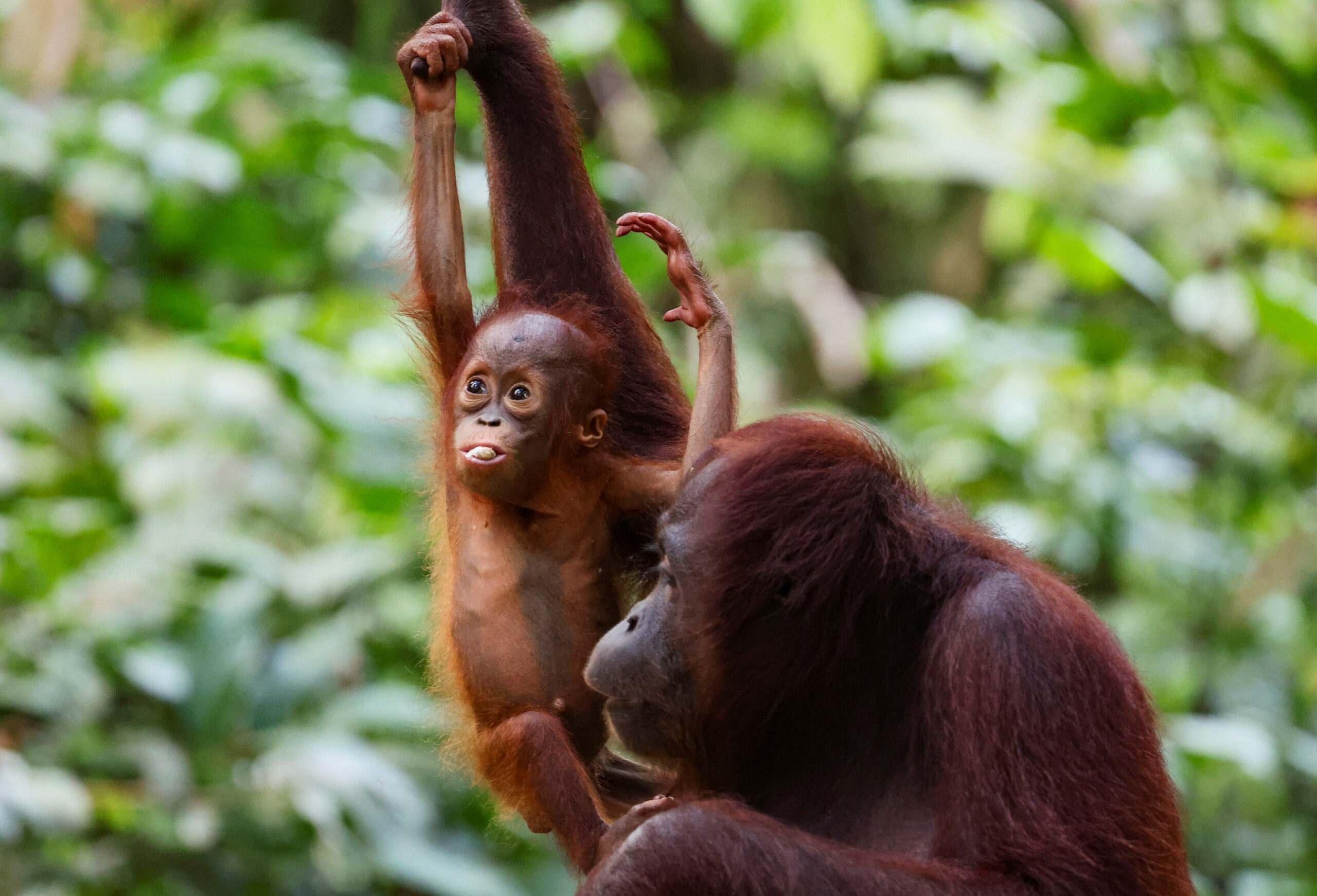
Malaysia releases a proposal to adopt an orangutan for palm oil importers
In a revised version of a conservation scheme that was previously declared this year, the commodities minister announced on Sunday that companies that import palm oil from Malaysia will be able to adopt orangutans. However, they will not be able to leave the country.
Johari Abdul Ghani, the Minister of Plantations and Commodities, also committed to preventing deforestation in Malaysia. He stated that 54% of the country was forested and that the level would not decline below 50%.
In an effort to alleviate apprehensions regarding the impact of palm oil production on the orangutans’ habitat, which typically entails the removal of forest land, the minister proposed a plan to send orangutans abroad as trading gifts in May.
Conservation groups, who are concerned about the welfare of the critically endangered orangutans, objected to the proposal.
“The animals are unable to depart their natural habitats.” It is imperative that we maintain their presence in this location. Johari stated at a news conference in Sabah, northern Borneo, “We will then convene with the countries or the buyers of our palm oil to determine whether they are interested in collaborating to guarantee the preservation and protection of these forests indefinitely.”
The orangutan, whose name translates to “man of the forest” in Malay, is estimated to have a population of less than 105,000 on the island of Borneo, according to the conservation organization WWF.
Following the European Union’s approval of an import prohibition on commodities associated with deforestation last year, the “orangutan diplomacy” initiative was initially disclosed in May.
The law was deemed discriminatory by Malaysia, the world’s second-largest producer of palm oil, which is utilized in a variety of products, including cosmetics and pizza.
Johari stated that the funds collected from companies that adopt orangutans would be allocated to the Sabah government and non-governmental organizations to oversee the forested areas in which the primates reside and to assess the animals’ protection and well-being.
He did not provide any information regarding the cost of adoption.
Marc Ancrenaz, the scientific director of the non-governmental organization Hutan, expressed his optimism that the plan could provide funding for habitat conservation initiatives, including the construction of corridors between fragmented forests that are insufficiently large to support viable wildlife populations.
All Categories
Recent Posts
Tags
+13162306000
zoneyetu@yahoo.com


